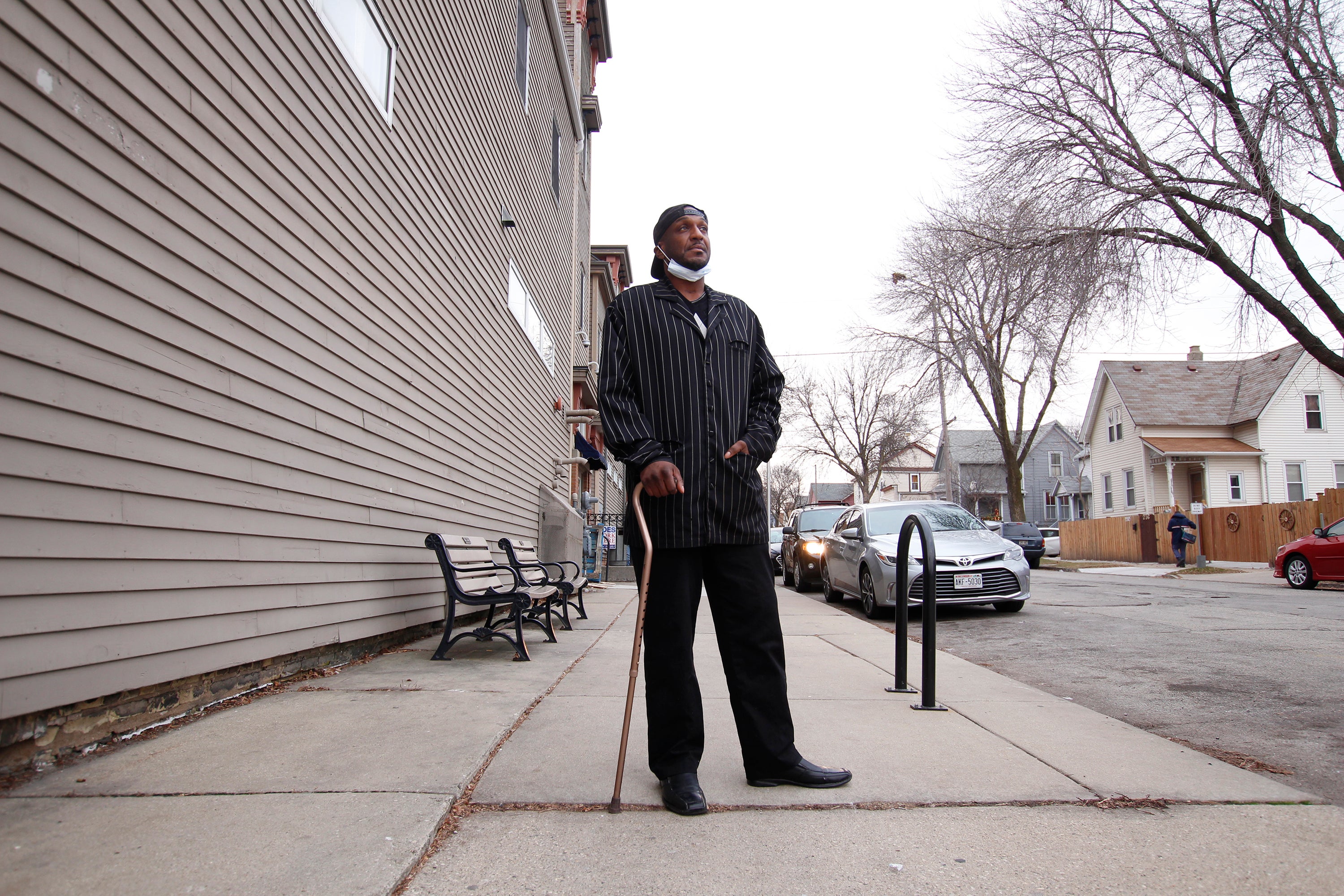Milwaukee County provides shelter for homeless with COVID-19
A former home for retired Catholic nuns in Milwaukee is now a shelter for homeless people who have COVID-19 or are vulnerable to the virus due to their health

Your support helps us to tell the story
From reproductive rights to climate change to Big Tech, The Independent is on the ground when the story is developing. Whether it's investigating the financials of Elon Musk's pro-Trump PAC or producing our latest documentary, 'The A Word', which shines a light on the American women fighting for reproductive rights, we know how important it is to parse out the facts from the messaging.
At such a critical moment in US history, we need reporters on the ground. Your donation allows us to keep sending journalists to speak to both sides of the story.
The Independent is trusted by Americans across the entire political spectrum. And unlike many other quality news outlets, we choose not to lock Americans out of our reporting and analysis with paywalls. We believe quality journalism should be available to everyone, paid for by those who can afford it.
Your support makes all the difference.Melvin Anthony had been homeless for more than 15 years when someone shot him during an attempted robbery last fall. With a wound in his thigh and COVID-19 running rampant, Anthony was afraid to stay on the streets
“I saw nothing but death for me because things were really that bad, you know, pretty much drinking water out my hand and eating out of garbage cans, that type of bad,” Anthony said.
He found safety and security at Clare Hall, a former home for retired Catholic nuns now serving as an isolation center for homeless people in Milwaukee County who have tested positive for the virus or are vulnerable due to their health.
The county had asked the Archdiocese of Milwaukee about using another of its buildings for a shelter, but the archdiocese suggested Clare Hall, which became available last January when the nuns moved to new quarters. More than 200 people have been housed there since the pandemic's onset in March.
“When you say it became open at an opportune time: God’s the one who has jurisdiction over time,” Milwaukee Archbishop Jerome Listecki said.
The archdiocese is charging no rent and the county is running the shelter with help from the city health and fire departments, and Hope House of Milwaukee, which aids the homeless. The estimated $120,000-plus monthly costs are covered mostly by the federal CARES Act and FEMA funds, along with city, county and United Way money.
Almost 60% of the people who pass through Clare Hall have tested positive for the coronavirus, said James Mathy, the county's housing division administrator. They stay an average of 20 days.
“This is the kind of cutting-edge stuff that needs to happen" during the pandemic, said Steve Berg, vice president of programs and policy for the National Alliance to End Homelessness.
The county was already reaching out directly to homeless in encampments, something other government entities pay nonprofits and other programs to do.
The county-run “Housing First” program places many of the homeless in accommodation, Mathy said, adding that the program has had a 96% success rate for keeping them housed since 2015. He said he believes that means fewer emergency room visits, reduced Medicaid costs and less strain on the mental health and court systems.
Milwaukee County has struck deals with hotels to provide rooms for homeless people who are at risk of being infected with COVID-19 but can't be accommodated at Clare Hall, Mathy said.
It's hard to quantify how the homeless have fared during the pandemic. Centers for Disease Control and Prevention data on infections among the homeless is incomplete because not all states participate in the project, but its data suggests a nearly 8% infection rate among the homeless.
At Clare Hall, the residents get three meals a day, a room with a bed and a TV, clothes and other supplies. There are also cleaning crews that disinfect daily, security guards and a recreational area.
Anthony, who has struggled with drugs and has been in and out of prison, said Clare Hall made him feel safe.
“I had enough time to think about what I was going through, in what ways to make better, make right, or what’s wrong in my life, and do what I needed to do in order to get back in shape mentally, physically and spiritually,” he said.
Since leaving Clare Hall, he has lived in a rooming house and is trying to transition from temporary to permanent employment, but it’s been difficult because he needs to walk with a cane. He gets help from the Hope House food bank and Clare Hall is assisting with his job search.
“I wake up every day and try for a better life,” he said.